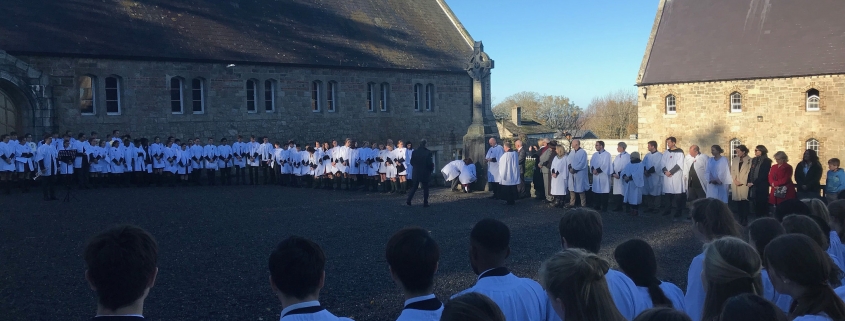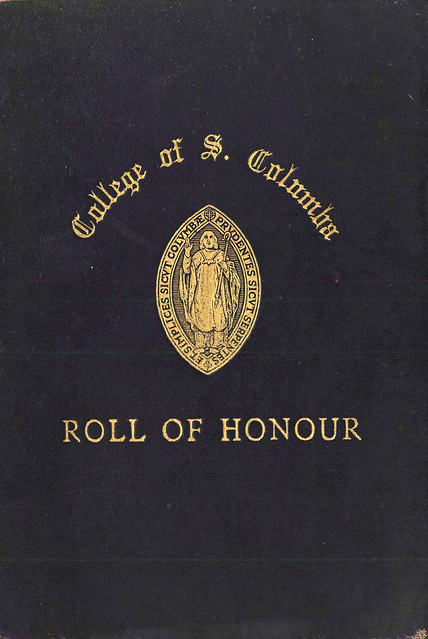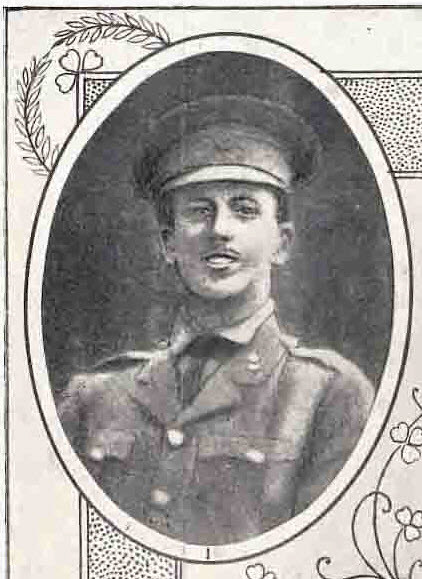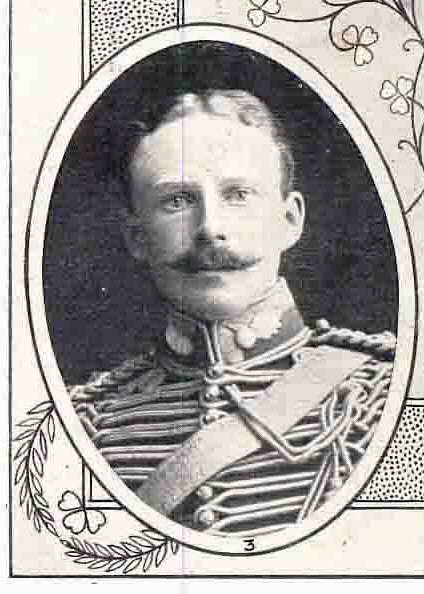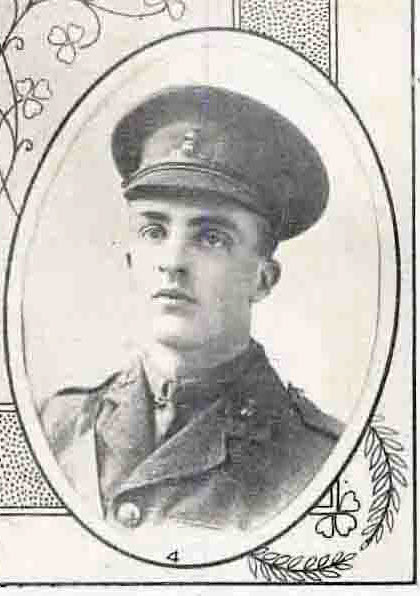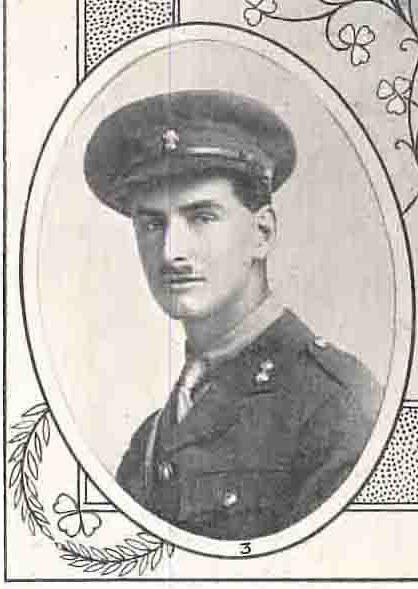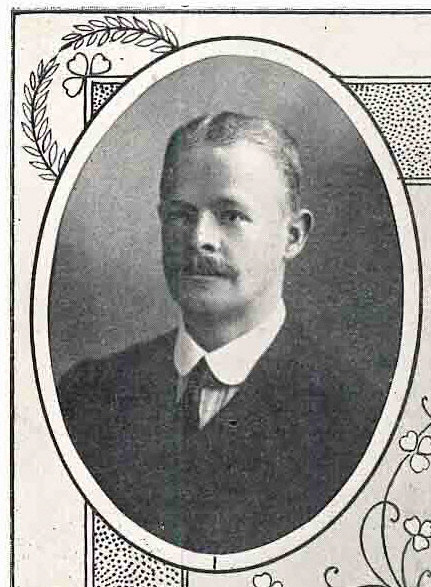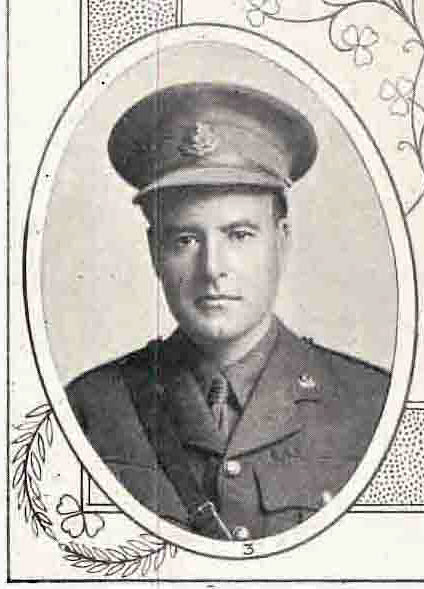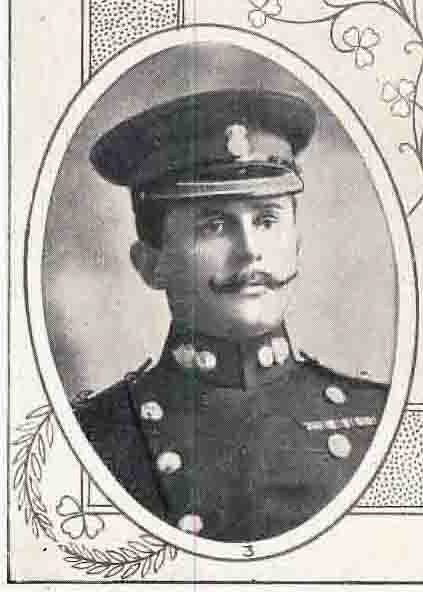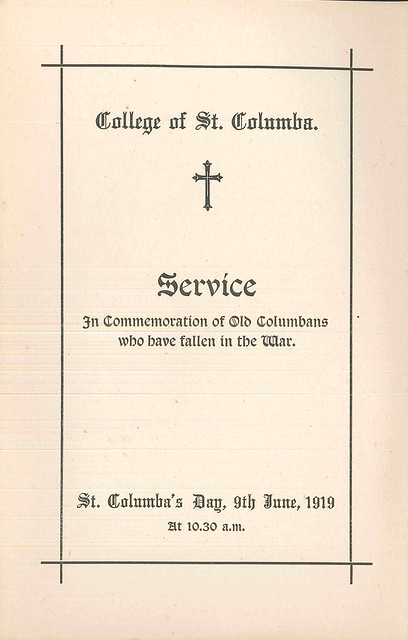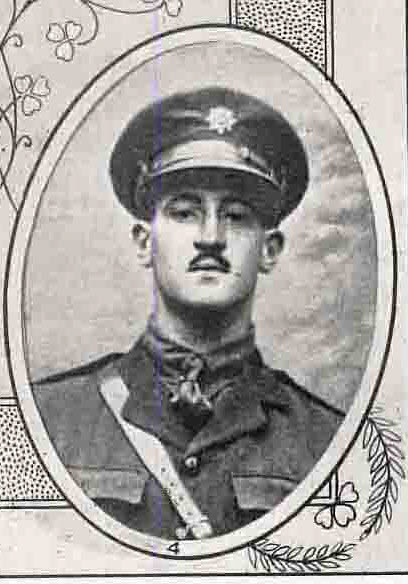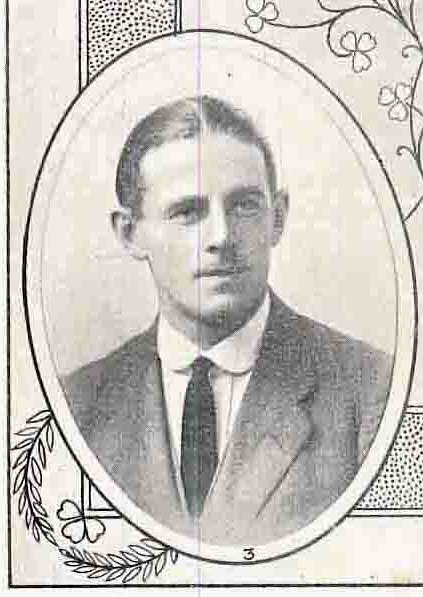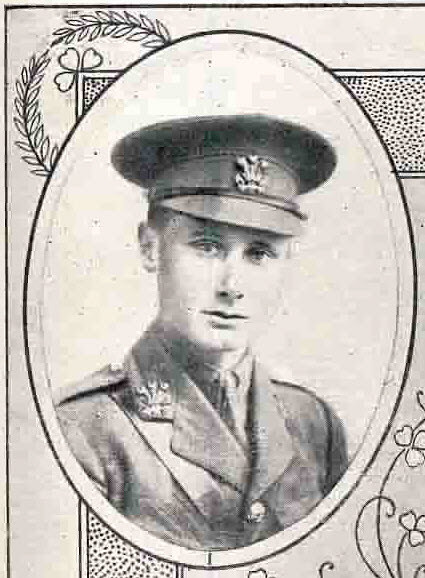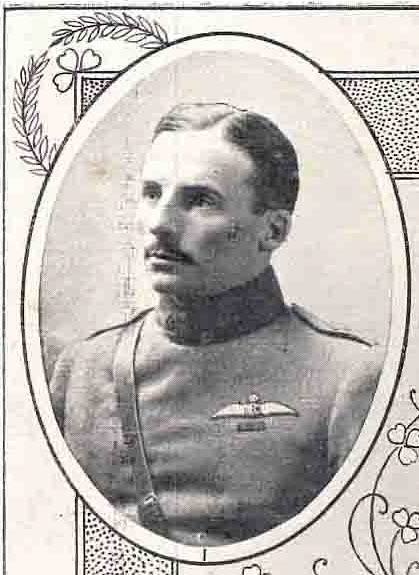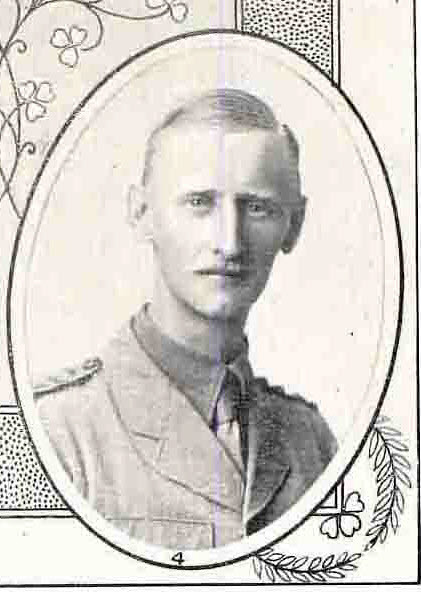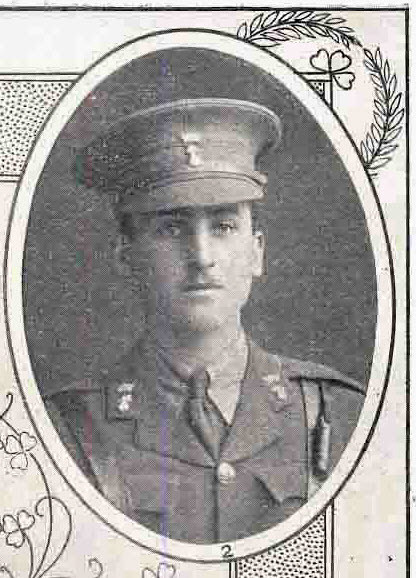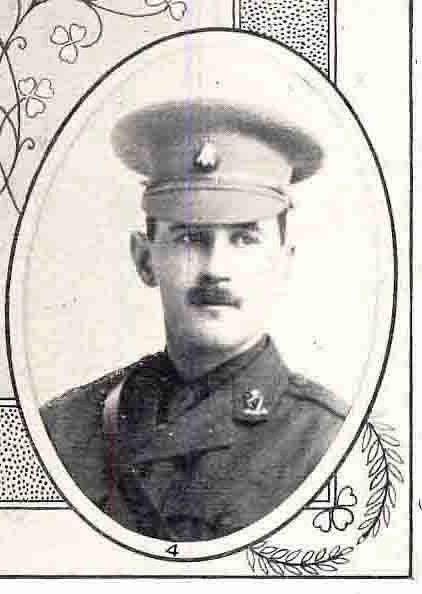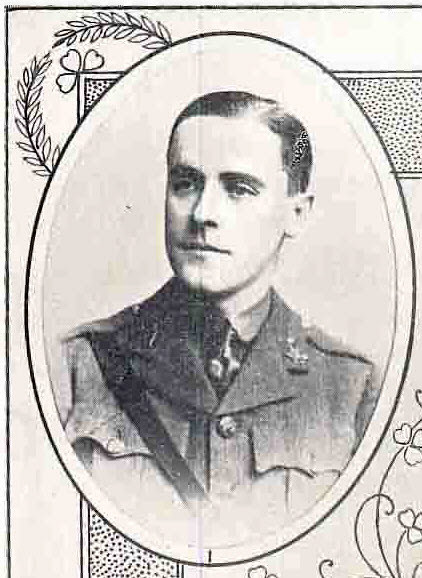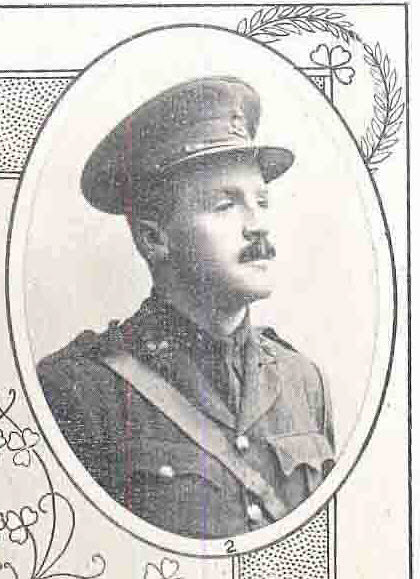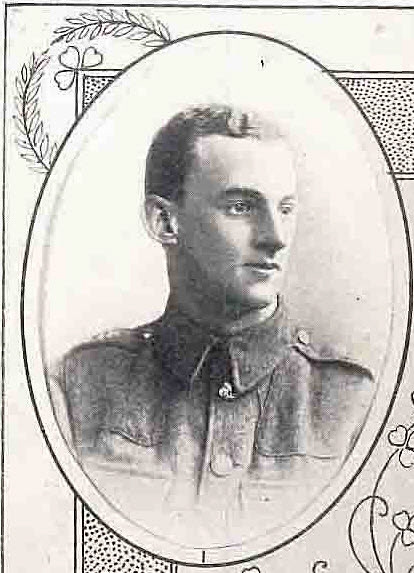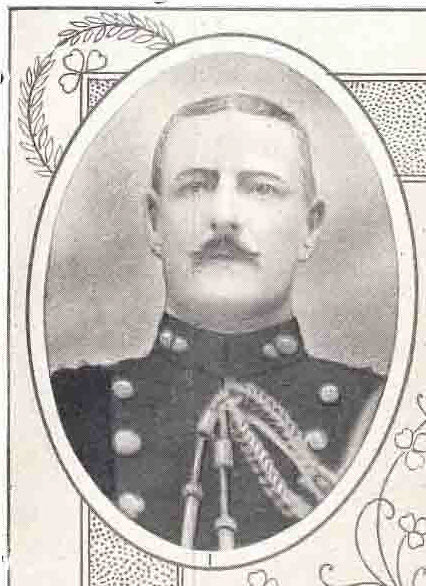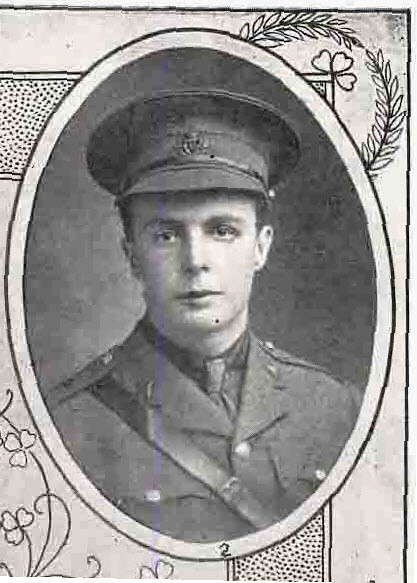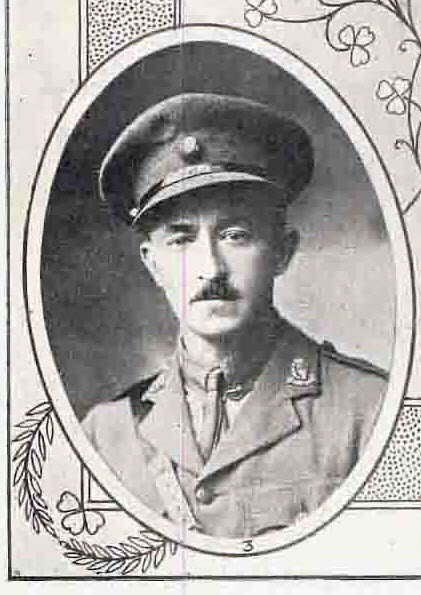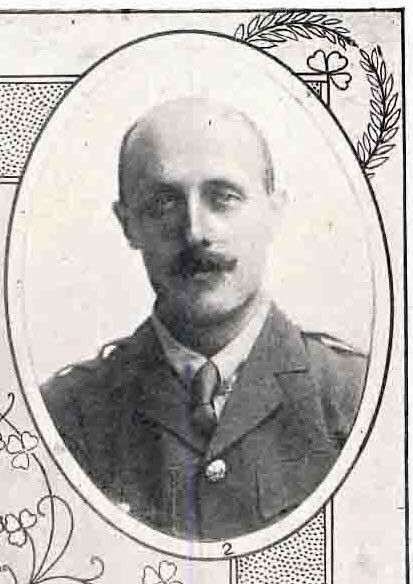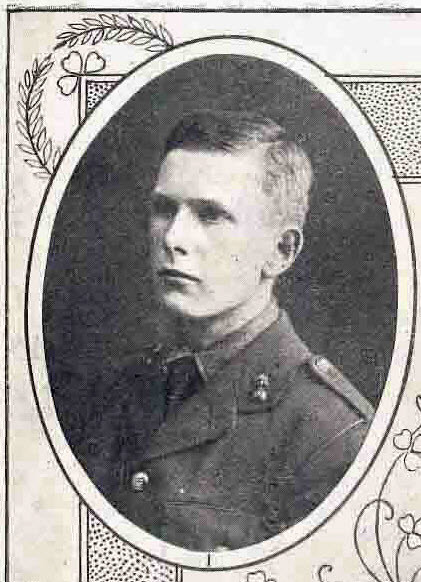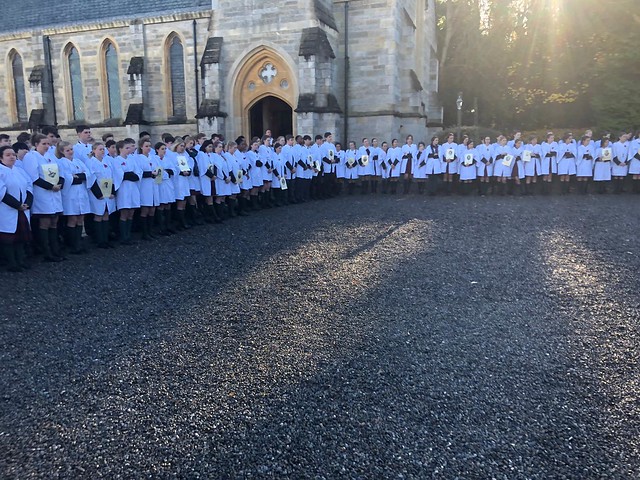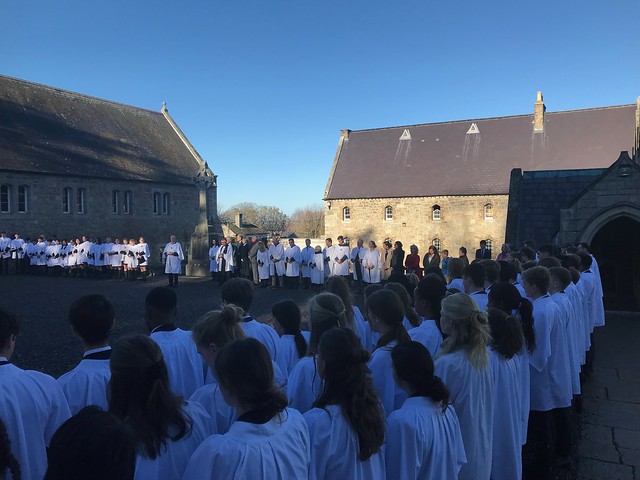Armistice Weekend
The College marked the centenary of the end of the First World War in a variety of ways this weekend.
On Saturday, there was a special service in Chapel, which included choral performances, and the calling out of the names of those Columbans who died in the War (these can be seen on the memorial plaque, opposite the plaque of the names of the dead of the Second World War), with their portraits held up by pupils. That afternoon, the Warden, Mr Redmond and two German prefects went to the German cemetery in Glencree to lay a wreath.
On Sunday, we had an expanded version of the annual Chapel Square parade and wreath-laying. Another special service, with music, readings and a reflective sermon by the Chaplain (see below) was followed by the school assembling on the square, the laying of a wreath at the 1921 War Memorial cross by the Senior and Second Prefects, and by the Old Columban Society President Dr Ian Fraser, as well as the Last Post and Reveille played on the trumpet by Konstantin Kuehne either side of the tw0-minute silence.
Below the text of the Chaplain’s sermon are some pictures from the weekend, and of Columbans who died in the First World War, as well as the sheet for the service in June 1919 referred to by the Chaplain.
Remembrance Sunday 2018. John 15:9-17
On the 9th June 1919, the College Community marked St. Columba’s Day. There was a Chapel Service at 10.30 am, but it was not the usual joyous occasion: how could it have been? The College, along with many other communities, was still very much in a state of shock as they tried to absorb the enormity of what had happened during what was then called ‘The Great War’. Young men who had sat in the seats where you sit now had gone to fight and many were now dead. As the early summer light shone in through these windows, you can picture the scene, could there have been a dry eye amongst any of them as the bell was rung, as the names were called out and as the hymns were sung? As the Archbishop of Dublin, John Bernard, spoke that day, what words did he manage to find to bring comfort and light and peace to his broken congregation? His own son, Robert, had been killed at Gallipoli in 1915. It must have been one of the most difficult sermons he had ever preached; as he gripped the stone of this pulpit, it must have felt particularly cold and hard that day.
One hundred years later, we are removed from the pain and sense of loss that those assembled here on that day would have felt, but during our services yesterday and today, inspired by that service in 1919, it is a time for us to remember those of our community and beyond who gave their lives. It is a time for us to thank God for the ending of hostilities and also to resolve within ourselves that whatever avenues of life we embark upon, that we will, by the grace of God be peacemakers.
In the reading from St. John’s Gospel, read a moment ago by the Sub-Warden, there is a line which reads:
“No one has greater love than this, to lay down one’s life for one’s friends.”
In the aftermath of World War I, this was a popular verse amongst many that were quoted from the Bible, as people tried to make sense of the horror of what had happened. It was a sentiment shared by many of the soldiers on all sides of the conflict. The political and poetical rhetoric talked about dying for one’s country and fighting for freedom, but for those in the trenches it was much more simple than that: they fought for their friends around them, their comrades in arms, they fought so that they could get back home to their loved ones, they fought so that their descent into hell would one day be over and that they could get on with their lives again.
When Jesus spoke those words to His disciples, He was talking about His own love for them and for all who would become His followers in the ages ahead. His love was and is so great that He willingly laid down His life for them and for us. In the rest of this section of the Bible, Jesus is talking about love and friendship and showing, by His own example what a friend should be like.
A friend is always there for us. A friend is someone who listens to us when we need someone to talk to, they enjoy spending time with us, we have things in common, similar likes and dislikes. But friends truly come into their own during times of crisis (that’s when we find out who our friends really are). Real friends stick by us no matter what and if we are a real friend to someone we will still be standing by their side even when everyone else has melted away. The Lord Jesus, both then and now is the perfect personification of friendship and his nail-pierced Hand is extended to us all…
I don’t know what the Archbishop spoke about that day (perhaps a copy of his sermon notes exists in an archive somewhere); we don’t know. But I like to think that he was able to find it deep within himself to speak some words of comfort and hope, a shard of light to pierce the gloom of collective grief that had descended upon this community. Just 21 days after he preached here that day, the Archbishop resigned from office. We don’t know why, perhaps it was just all too much. Perhaps if he and the congregation assembled here that day could have known that 100 years later we would be here in solidarity with them, in the same pews, in the same Chapel and in the same College, they would have been greatly comforted and encouraged to hear us also speak the same words that fell from their salty lips, ‘We will remember them’.
Amen.”

